It's hard to disagree with Matthew Wright, in his brisk analysis of the shortcomings of British crime drama (see below). He notes how flashes of inspiration are smothered by skimpy budgets and the timidity of commissioning editors. The disastrous anti-climax of London Spy was a classic example. A British Sopranos seems further away than ever.
But all is not lost, and as our picks of the year show, there has still been plenty of great stuff to watch, from the finely-woven historical drama of Wolf Hall to the dark and daring Jessica Jones or the comic touch of Mackenzie Crook and Peter Kay. However, Netflix and other online services are inexorably transforming our viewing habits with their huge budgets and lavish production values. What will our list look like in a year's time?
THE BEST
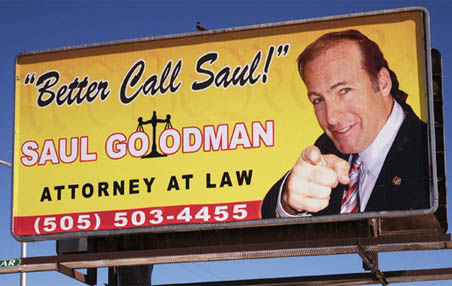 Better Call Saul, Netflix
Better Call Saul, Netflix
This was the year when streaming TV started to plant its giant boots in the mainstream, with powerful offerings from Amazon Prime (Mr Robot, The Man in the High Castle) and Netflix (Daredevil, Jessica Jones, Narcos). Netflix also brought us this eagerly awaited spin-off from Breaking Bad, and it fulfilled its promise resoundingly. Once you'd adjusted to the circuitous plotting and become acquainted with the tics and nuances of the characters, Saul gradually revealed itself as a masterly essay in friendship, loyalty and dogged determination, counterbalanced by vengeance, treachery and not-so-petty crime. In short, all of human nature was here. Bob Odenkirk's Jimmy McGill, the scuffling self-taught lawyer who would become Saul Goodman in Breaking Bad, was formerly the Illinois conman Slippin' Jimmy, a slick professional hustler forced by circumstances to change his life and, despite himself, finding a kind of warped nobility. Odenkirk is consistently brilliant, and Michael McKean as his Machiavellian brother Chuck almost as good. A special bonus is the warm, funny and complicated (but not sexual) relationship between Saul and Rhea Seehorn's Kim Wexler.
Historical treat: The Last Kingdom, BBC Two. Who thought it would be this good? Adam Sweeting
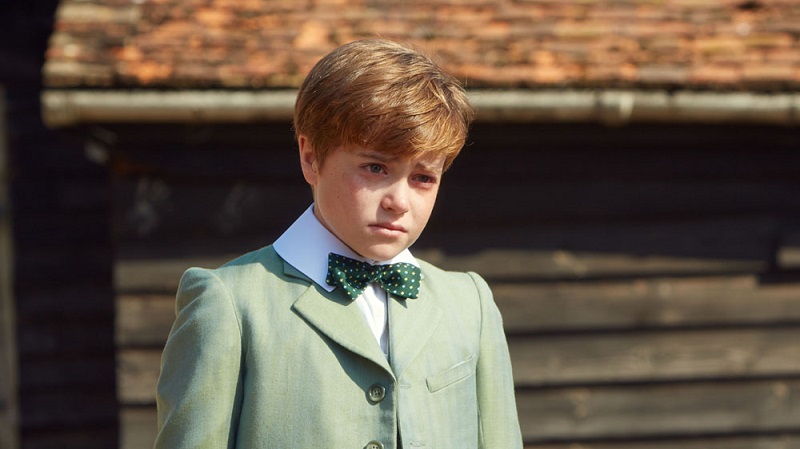 The Go-Between, BBC One
The Go-Between, BBC One
In the autumn the BBC spooled back 100 years to adapt a quartet of 20th century classics. The most and least (see below) successful of them were stories of illicit spooning in the upper echelons. The story of an innocent boy carrying ardent messages between a rich young beauty and a rugged farmer, The Go-Between, LP Hartley’s devastating story about the long hypnotic shadow cast by the past, was harmoniously rejigged for the small screen by scriptwriter Adrian Hodges and director Pete Travers, who framed the gilded paradise of a Norfolk summer in sensual glances and lush screen grabs of floating pollen and wafting corn. Joanna Vanderham played Marian as a radiant extension of the sun, while Ben Batt’s Ted suggested a gristly compound of gnarled oak and lumpy earth. As Leo Colston, the smitten spring-heeled Mercury ferrying messages between them, Jack Hollington’s trusting eyes caught brief confused glimpses of his coming expulsion from Eden. He beautifully prefigured Jim Broadbent as the older incarnation, wearing a look of crushed sorrow as he chugged back to the foreign country of his distant youth. Jasper Rees
 Dan Cruickshank's Civilisation Under Attack, BBC Four
Dan Cruickshank's Civilisation Under Attack, BBC Four
The most terrifying, informative and grimly fascinating programme was Dan Cruickshank’s Civilisation Under Attack, his calmly dispassionate narrative of the recent massive, even unprecedented destruction of history in the form of material culture by the Islamic State in Syria and Iraq over the past two years or so, making even the Taliban’s blowing up of ancient Buddhas in Afghanistan look like child’s play.
Much enjoyed: Sona Dutta’s magnificent trilogy Treasures of the Indus, history as much as art history; Antonio Pappano’s four-part series on singing and singers, from soprano to bass; and Andrew Roberts' OTT counter-intuitive trilogy on Napoleon. Marina Vaizey
Detectorists, BBC Four
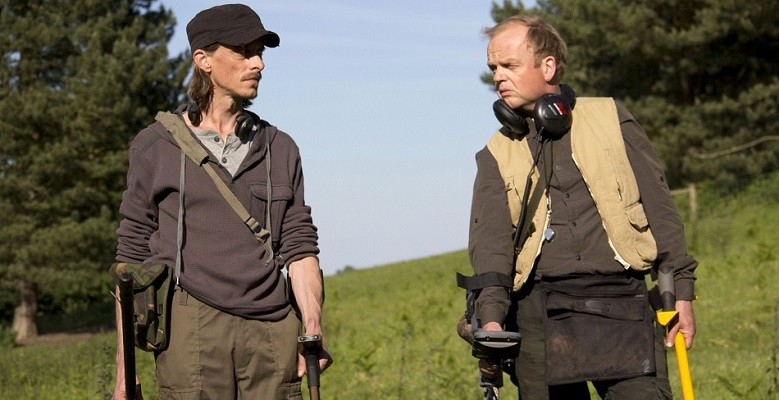 WIthout any fanfare or bluster, Mackenzie Crook's gentle, bucolic sitcom about a group of misfits searching for gold in the English countryside returned and quietly got on with the business of being the most exquisitely written and beautifully observed comedy of British TV. Of course, it's not really about the search for treasure, it's about finding value in lives and friendships and love and loss. Thankfully, it had both the script and the performances – from Crook himself as the amiable Andy, Toby Jones as his detectorist buddy Lance, and Rachel Stirling as Andy's long-suffering girlfriend Becky, to provide us with that in spades. Meanwhile the cinematography perfectly framed the ordinary in extraordinary ways and provided us with the sort of sitcom that you feel there should be more of. Heartwarming, poignant and, crucially, very, very funny indeed. Barney Harsent
WIthout any fanfare or bluster, Mackenzie Crook's gentle, bucolic sitcom about a group of misfits searching for gold in the English countryside returned and quietly got on with the business of being the most exquisitely written and beautifully observed comedy of British TV. Of course, it's not really about the search for treasure, it's about finding value in lives and friendships and love and loss. Thankfully, it had both the script and the performances – from Crook himself as the amiable Andy, Toby Jones as his detectorist buddy Lance, and Rachel Stirling as Andy's long-suffering girlfriend Becky, to provide us with that in spades. Meanwhile the cinematography perfectly framed the ordinary in extraordinary ways and provided us with the sort of sitcom that you feel there should be more of. Heartwarming, poignant and, crucially, very, very funny indeed. Barney Harsent
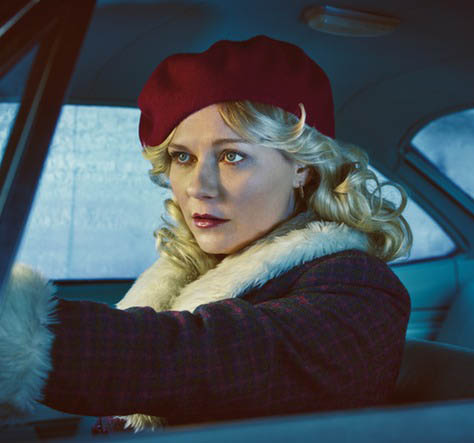 Fargo, Season 2, Channel 4
Fargo, Season 2, Channel 4
It was one of Fargo’s less surprising developments that the first series of this Coen Brothers spin-off series won so many awards, with Emmys and Golden Globes spattered across the cast like blood spots sprayed across the wall following one of the many violent settling of scores. This second series has moved back 25 years, and employs a completely different and (the excellent Kirsten Dunst, pictured right, aside) generally less starry cast, but the addictive blend of wry humour and action, like a subtle Tarantino movie, with freewheeling plot and chronology, and charming period effects, from the use of split-screens to the colour-washed emptiness of the Dakota landscape, have ensnared just as many viewers as series one, with series three already in production. Matthew Wright
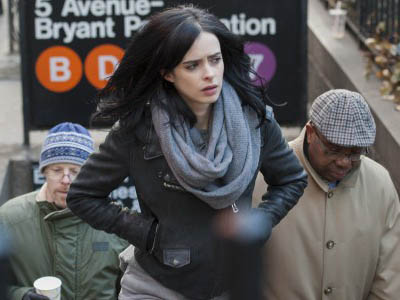 Jessica Jones, Netflix
Jessica Jones, Netflix
This may have been the year that streaming platforms went mainstream as the home of must-see new TV – but there are still some things open to the likes of Netflix that traditional television can't do, such as a 13-part feminist exploration of sexual assault, trauma and the meaning of consent masquerading as yet another superhero show. Jessica Jones was dark, immersive, clever and thought-provoking, and thanks in no small part to a rare female showrunner in Melissa Rosenberg and some excellent casting, populated by female characters who got to be complicated and messy and almost completely unlikeable – just like your Tony Stark. And yet, still no Marvel movie for the Black Widow. It's as if nobody wants my money.
Much enjoyed: Jessica Jones was one of several shows that deftly handled some of the darker parts of the human psyche: the second series of US anti-romcom You're the Worst was an unflinching and honest portrayal of what it's like to be, and to love, somebody with depression – while still really, really funny – and Rae Earl (Sharon Rooney) traded her storybook ending for a realistic one in a final, short series of My Mad Fat Diary. Lisa-Marie Ferla
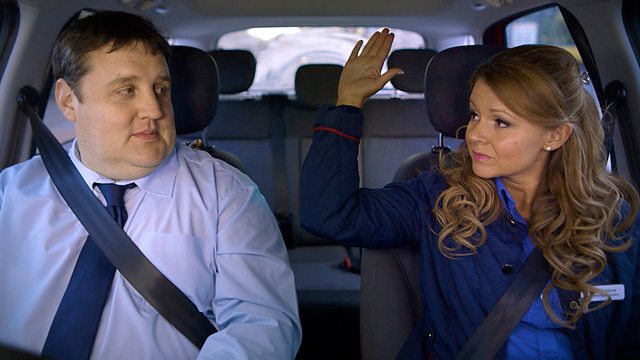 Peter Kay's Car Share, BBC One
Peter Kay's Car Share, BBC One
Sometimes the simplest things work best. Car Share is essentially a two-hander about fortysomethings John and Kayleigh; Peter Kay is grumpy singleton John, the manager of a Lancashire superstore, Kayleigh (Sian Gibson) one of his staff whose life, despite her ambition and hard work, seems to be going nowhere. Forced to share their daily commute by their employers, the two at first seemed ill-matched, but through the six episodes a touching love story emerges – and the audience see long before them that John and Kayleigh are made for each other.
It was fantastic comedy too, with many of the harder laughs coming from the radio station Kayleigh insisted John's radio should be tuned to – Forever FM – with its atrocious local ads and a slew of Eighties hits they sang along to. There were also wry laughs from the contrast of John's world-weariness with Kayleigh lack of worldliness, not least when she was terribly confused that a man whose handle on a dating site was “Pussy Lover” was not fond of cats... I initially had my doubts about the fantasy sequences, but theye were sparingly and well used. It's an exquisite piece of work – beautifully written by Paul Coleman and Tim Reid, with contributions from Gibson and Kay (who also directed) – a subtle, slow-burn romance that made viewers laugh and cry, and demanded to be watched again immediately to savour its worth. Veronica Lee
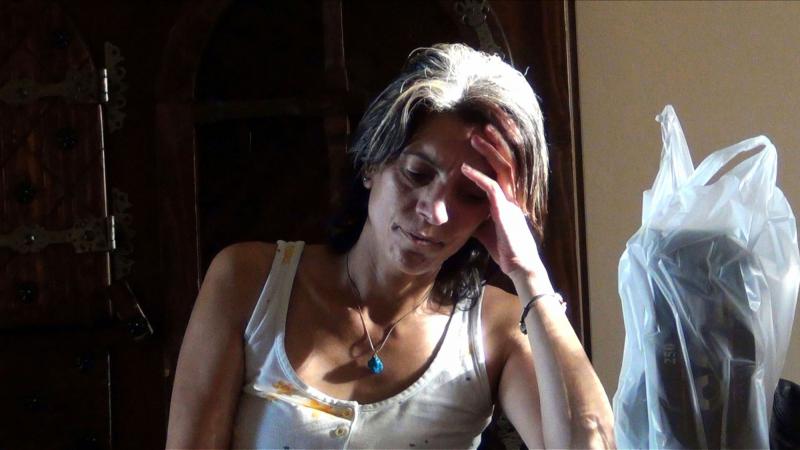 Storyville: A Syrian Love Story, BBC Four
Storyville: A Syrian Love Story, BBC Four
I’ve long extolled the Storyville documentary strand as one of British television's special glories, and this year has only made that impression stronger. It continues to defy the categories to which theartsdesk adheres, with a number of its episodes from 2015 airing first in cinemas (or at the London Film Festival) before their appearance on the small screen. It was on television that I saw Sean McAllister’s outstanding A Syrian Love Story (after it had already won the Grand Jury prize at the Sheffield documentary festival). McAllister’s story of a family in discord was bruising viewing, as it moved from their uneasy life at home around the beginning of the Arab Spring, through exile in France, and from there into an uncertain future. McAllister’s own involvement – which stretched over five years – crossed traditional boundaries, his own fate becoming involved with, and influencing that of his subjects.
For another unusual take on documentary, David Sington’s The Fear of 13 was remarkable. Convicted murderer Nick Yarris recounted his story in a monologue performance of tight tension and supreme actorly accomplishment. I caught that one on the big screen, and it should be coming up in 2016 on the BBC. Whether it’s the main backer (as with McAllister’s film), or one of a handful of international producers (with Sington’s), Storyville is instrumental in bringing us work that we would likely not otherwise be seeing – because it might not be being made. Tom Birchenough
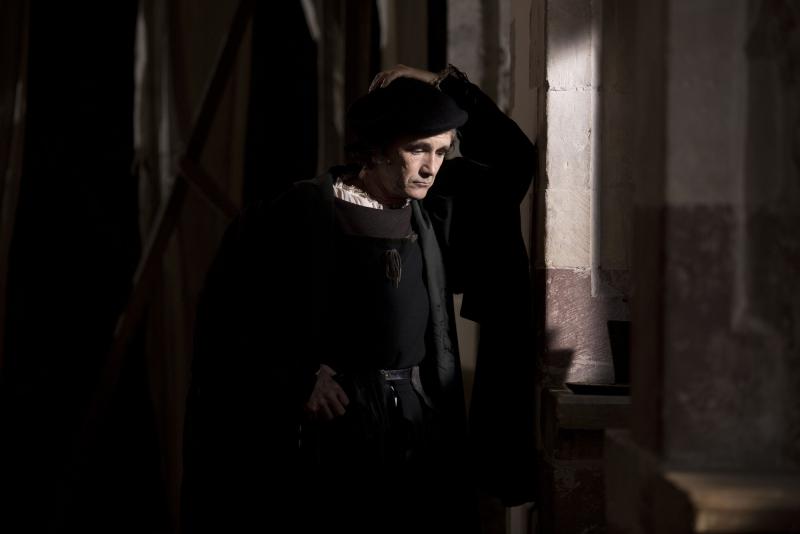 Wolf Hall, BBC Two
Wolf Hall, BBC Two
Hilary Mantel’s novel is such a marvellous work of imagination that adapting it for television seemed a fool’s errand. How could Thomas Cromwell, so vividly conjured in the mind’s eye, co-exist with an actor’s interpretation? In fact, the silent strength of Henry VIII’s fixer as portrayed by Rylance, in long brooding silences that enraged many but delighted me, seemed to grasp the very essence of Mantel’s Cromwell. But while individual performances were stunning, it was the design and cinematography, the mise-en-scène that really caught the imagination. Endless candlelit interiors, Cromwell’s wife sewing in the window at Austin Friars: scenes of exquisite beauty that might have been painted by Vermeer. Florence Hallett
THE WORST
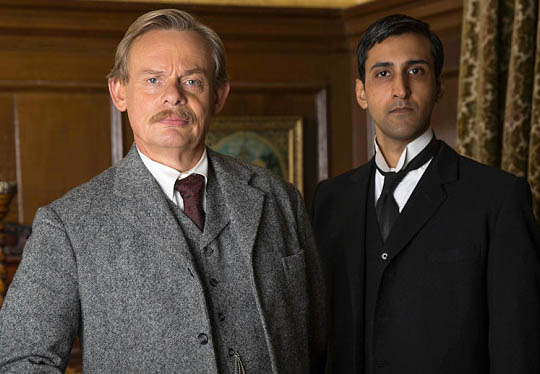 Arthur & George, ITV
Arthur & George, ITV
I only watched one episode of this three-part series, it was all I could stand. Adapted from a Julian Barnes novel (said to be very good) the titular Arthur is of course Sir Arthur Conan Doyle, creator of Sherlock Holmes, a fact that seemed only to invite unfavourable comparisons with the great sleuth, in all the various guises he has appeared in on our screens. Next to Holmes most of us are boring, but Martin Clunes excelled in this department, portraying the well-meaning but pedestrian Arthur with wearying dedication. The plot, to do with attacks on horses, was unfathomable and even the scenery – surely the atmospheric smog of Victorian London is a gift? – failed to inspire. Florence Hallett
 British Crime Drama, All Channels
British Crime Drama, All Channels
Fans of British crime drama – as opposed to their Nordic or American counterparts – have been living on thin gruel. There are flashes of inspiration, but budgets and schedules never match the writer’s imagination. Idris Elba’s Luther (pictured left) had enough plot (if not, perhaps, true inspiration) to fill a whole series of Fargo, but was stuffed into two episodes like Alex’s body into a well-equipped chest in the loft in the portentously flailing London Spy. ITV’s Prey exemplified the unfulfilled potential of our national TV production with moments of exciting and sometimes inspired characterisation that rested upon a plot drawn, overall, from a garish collage of cliches, ending with a car crash of desperate bathos that destroyed everything worthwhile before it. In none of these productions, which flutter hopefully before smoking to nothing like a burnt-out candle, do the people holding the chequebooks seem to have enough faith in the writers and cast to give them the time or breadth of canvas required. Matthew Wright
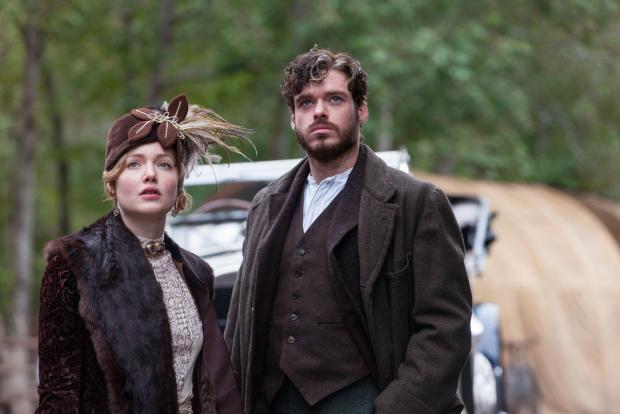 Lady Chatterley’s Lover, BBC One
Lady Chatterley’s Lover, BBC One
This selection is sort of unfair, because Lady Chatterley’s Lover was of course nowhere near the least competent drama on television. But it was the least satisfactory of the four 20th century classics (the others were An Inspector Calls and Cider with Rosie). The novel seemed to have been locked in the cellar, only for rare stabs of authentic Lawrence to show up and embarrass the mostly invented dialogue. Directing his own adaptation, Jed Mercurio could be forgiven for tightening the loose stays of Lawrence’s wafty plotting, but what also went in the cull was the novel’s profound disquisition on society’s attitude to what its author called “the sex thing”. Aside from one cameo for Mellors’ famous sidekick John Thomas, the drama felt mystifyingly coy about the human body, which felt like perfidious treatment for a novel banned for being too honest. It became an awkward tragedy about virility in which the lovers finally motored off into a classless future. A bit of a cheek from the writer who wouldn’t tie up a single bow in Line of Duty. Jasper Rees
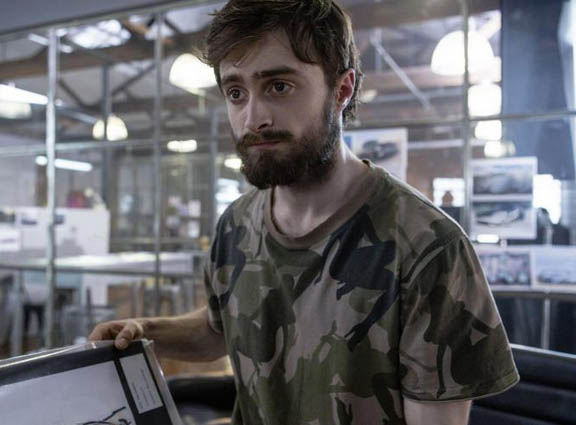 The Gamechangers, BBC Two
The Gamechangers, BBC Two
This fact-based drama about Rockstar Games and its fabulously successful Grand Theft Auto series looked as if it might have been the moment when the rampant computer games industry received serious consideration from the mainstream media. With Daniel Radcliffe playing Rockstar mastermind Sam Houser, what could possibly go wrong? Nearly everything, it transpired. A feeble script turned the characters into two-dimensional cyphers, a frugal budget gave it a cheap'n'nasty air, and the attempts to depict the war between the censorious Moral Majority and the gamers and their digital sex and violence fizzled anticlimactically. Maybe somebody will do a proper movie about Rockstar someday. Adam Sweeting
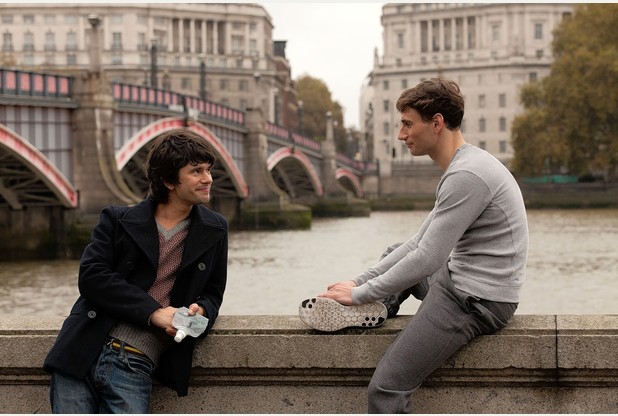 London Spy, BBC Two
London Spy, BBC Two
How can something that started so well end up being such a pile of utter bilge? It had everything going for it – writer Tom Rob Smith, a superb cast headed by Ben Whishaw, the capital giving one of its best performances as the menacing location – and the first episode was gripping.
Whishaw was superb as Danny, rootless and hedonistic, who fell in love with Alex (Edward Holcroft). He thought Alex did "something in the city”, but when Alex was murdered and Danny was framed, he discovered that Alex was really Alistair and a spy. Nothing was as it seemed, which is how a good thriller should be. But then Smith went a little mad, steering the story into full-on hokum territory, as all the superpowers appeared to be implicated in destroying the code that Alex had devised, and he was killed with the help of his mother, played by Charlotte Rampling. The denouement was so ridiculous that I was giggling (Rampling coming off the worst as the story spiralled into nonsense) and I felt sorry for the superb cast, including Jim Broadbent, Adrian Lester and Harriet Walter, who gave London Spy far more gravitas than it ultimately deserved. Veronica Lee
TFI Friday, Channel 4
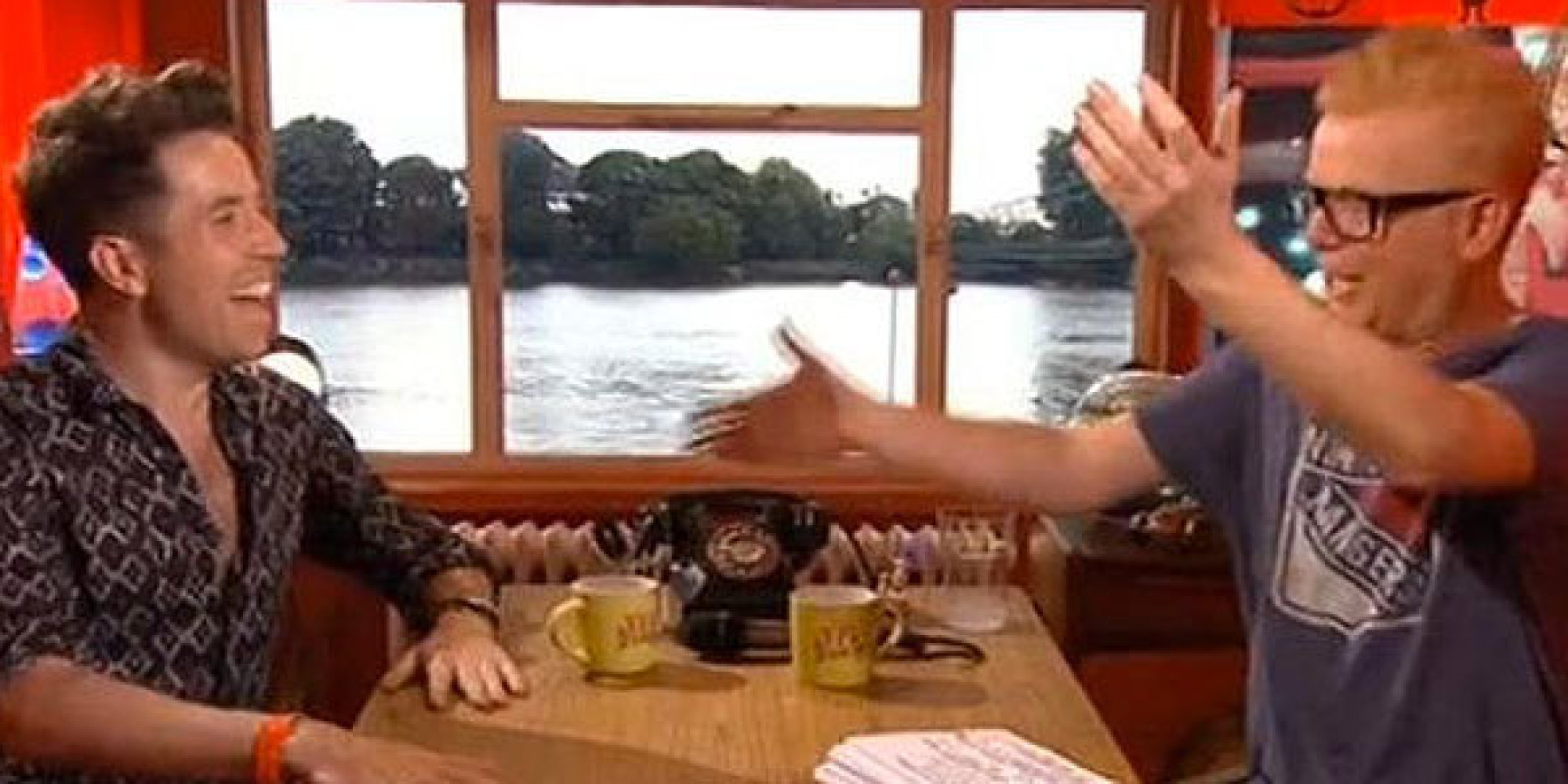 Like the solution to a problem you never had, Chris Evans returned with a triumphalist sense of his own import to drag us back to the mid-90s and the bands that time forgot... Despite Chris's insistence at the time of this "special" that a younger man should helm the show should it become a regular feature, Nick Grimshaw ended up a spare part on The X Factor, where he dealt with the pressure of live TV with all the tensile strength of a warm Kit-Kat. That meant that when the inevitable happened, the job fell to Chris himself. Probably quite fitting when you consider that it was a youth show returning as entertainment for the middle-aged, now anchored to the sofa by kids and a widening waistline. Barney Harsent
Like the solution to a problem you never had, Chris Evans returned with a triumphalist sense of his own import to drag us back to the mid-90s and the bands that time forgot... Despite Chris's insistence at the time of this "special" that a younger man should helm the show should it become a regular feature, Nick Grimshaw ended up a spare part on The X Factor, where he dealt with the pressure of live TV with all the tensile strength of a warm Kit-Kat. That meant that when the inevitable happened, the job fell to Chris himself. Probably quite fitting when you consider that it was a youth show returning as entertainment for the middle-aged, now anchored to the sofa by kids and a widening waistline. Barney Harsent

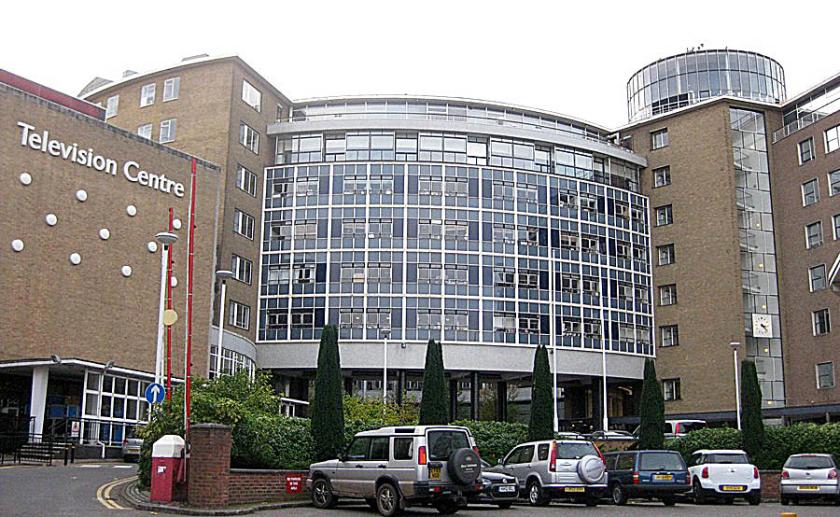













Add comment